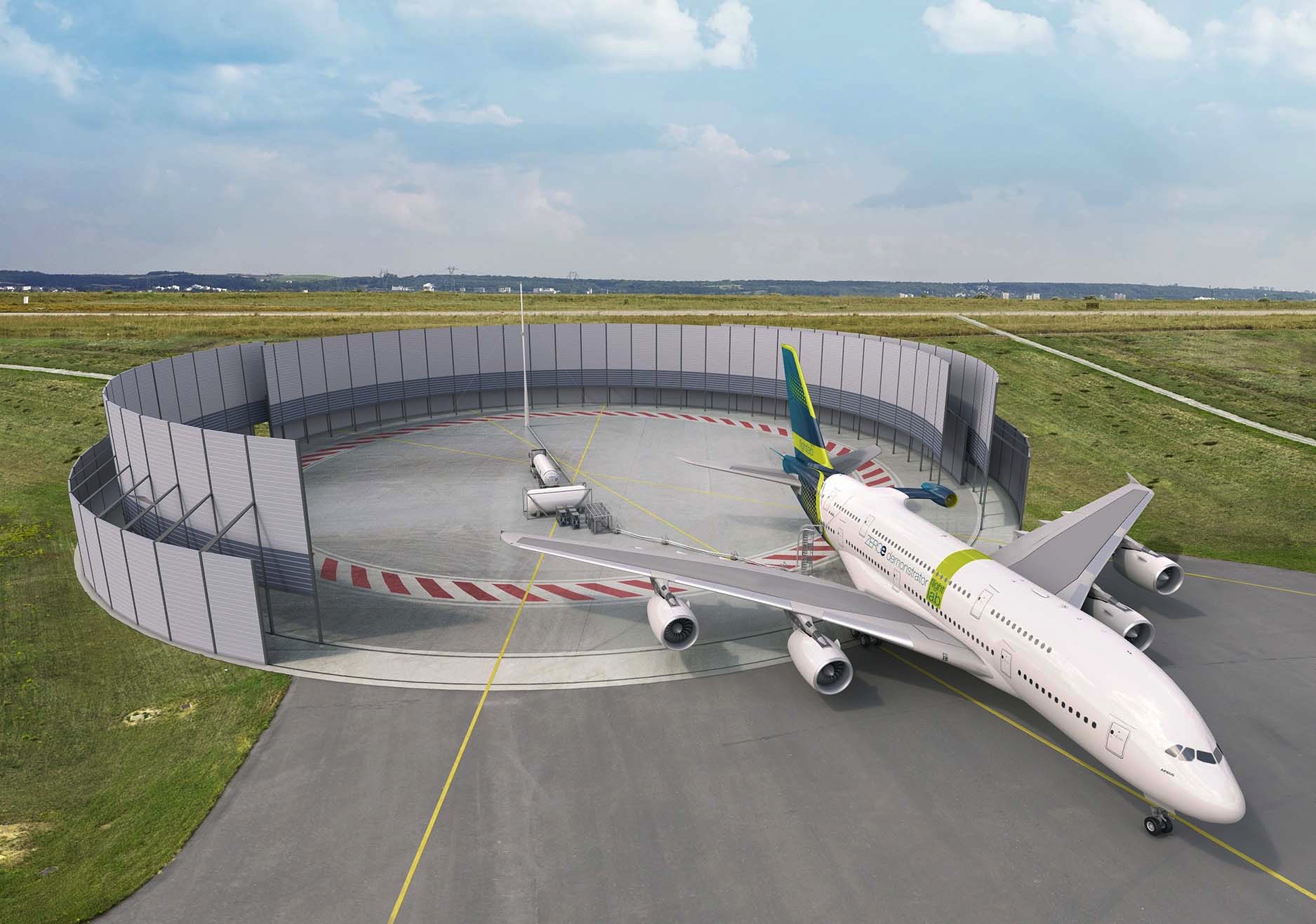Click Here to View This Page on Production Frontend
Click Here to Export Node Content
Click Here to View Printer-Friendly Version (Raw Backend)
Note: front-end display has links to styled print versions.
Content Node ID: 410056
Airbus has accelerated work on the development of a hydrogen-powered fuel cell engine as part of its studies into a zero-emission aircraft scheduled for service entry by 2035, company executives revealed in Toulouse at Airbus’s Sustainability Summit on Wednesday.
As part of its wider preparations for hydrogen-powered air transport, the European airframer announced a partnership with space group Ariane to build a liquid hydrogen refueling system at its Toulouse, France, headquarters by 2025. During the summit, it also reported that it is working with green hydrogen specialist HyPort to have a hydrogen production, storage, and distribution facility in operation at Toulouse-Blagnac Airport in 2023.
Airbus said it will start ground and flight testing the proposed fuel cell engine architecture onboard its ZeroE hydrogen-powered demonstrator aircraft towards the middle of this decade. The A380 MSN1 flight test aircraft for new hydrogen technologies is now undergoing modification to carry liquid hydrogen tanks and their associated distribution systems.
"Fuel cells are a potential solution to help us achieve our zero-emission ambition and we are focused on developing and testing this technology to understand if it is feasible and viable for a 2035 entry-into-service of a zero-emission aircraft,” said Airbus vice president for zero-emission aircraft Glenn Llewellyn. “At scale, and if the technology targets were achieved, fuel cell engines may be able to power a 100-passenger aircraft with a range of approximately 1,000 nautical miles. By continuing to invest in this technology we are giving ourselves additional options that will inform our decisions on the architecture of our future ZEROe aircraft, the development of which we intend to launch in the 2027-2028 timeframe.”
Airbus has identified hydrogen as one of the most promising alternatives to power a zero-emission aircraft because it emits no carbon dioxide when generated from renewable energy.
During the summit, Llewellyn explained the two primary ways one can use hydrogen as a power source for aircraft propulsion. The first involves hydrogen combustion in a gas turbine, the second through the use of fuel cells stacked together to convert hydrogen into electricity to power a propeller engine. A hydrogen gas turbine can also work with fuel cells instead of batteries in a hybrid-electric architecture. Airbus continues work on both potential applications.
Airbus’s has explored the possibilities of fuel-cell propulsion systems for aviation for some time. In October 2020, Airbus created Aerostack, a joint venture with ElringKlinger, a company with more than 20 years of experience as both a fuel cell systems and component supplier. In December 2020, Airbus presented its pod concept, which included six removable fuel cell propeller propulsion systems.
France-based HyPort is a joint venture between Engie Solutions and the Regional Agency for Energy and Climate in Occitanie. Its work with Airbus is intended to create a blueprint for establishing hydrogen fueling infrastructure that builds on the Hydrogen Hubs for Airports initiative that the manufacturer announced in 2020.
Initially, the facility at Toulouse-Blagnac Airport will produce around 400 kg of hydrogen each day and this will be enough to power around 50 ground transportation vehicles. "Our involvement with HyPort demonstrates the tangible progress Airbus is making on its journey to secure the future energy ecoystems of tomorrow," said Karine Guenan, Airbus's vice president for ZeroE Ecosystem. "Using hydrogen to decarbonize all airport-associated ground transport in the 2020 to 2030 timeframe will pave the way for hydrogen availability for zero-emission aircraft by 2035."

In tandem with this project, the ArianeGroup, which is jointly owned by Airbus and Safran, will now design, produce and support the operations of a liquid hydrogen fueling system specifically for the ZeroE demonstrator during the ground and flight test campaign. The company has more than 40 years of experience working with the fuel for the propulsion systems used by the Ariane space rockets.
"Many of the technologies required for a zero-emission aircraft are already available in other industries and liquid hydrogen handling is no exception," said Sabine Klauke, chief technical officer of Airbus. "Preparing for the entry into service of a zero-emission aircraft in 2035 means that we need to mature all of the required technologies in parallel."